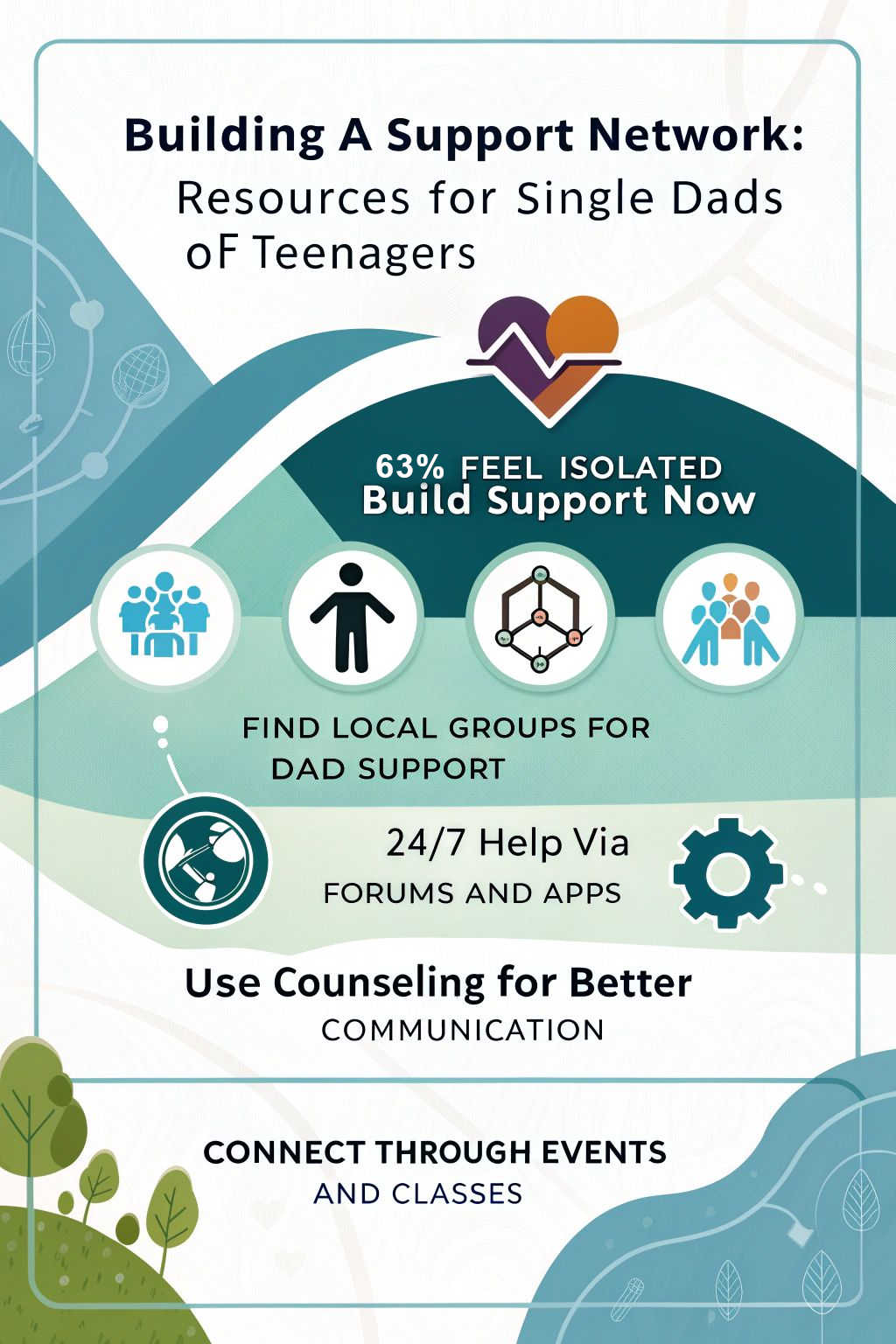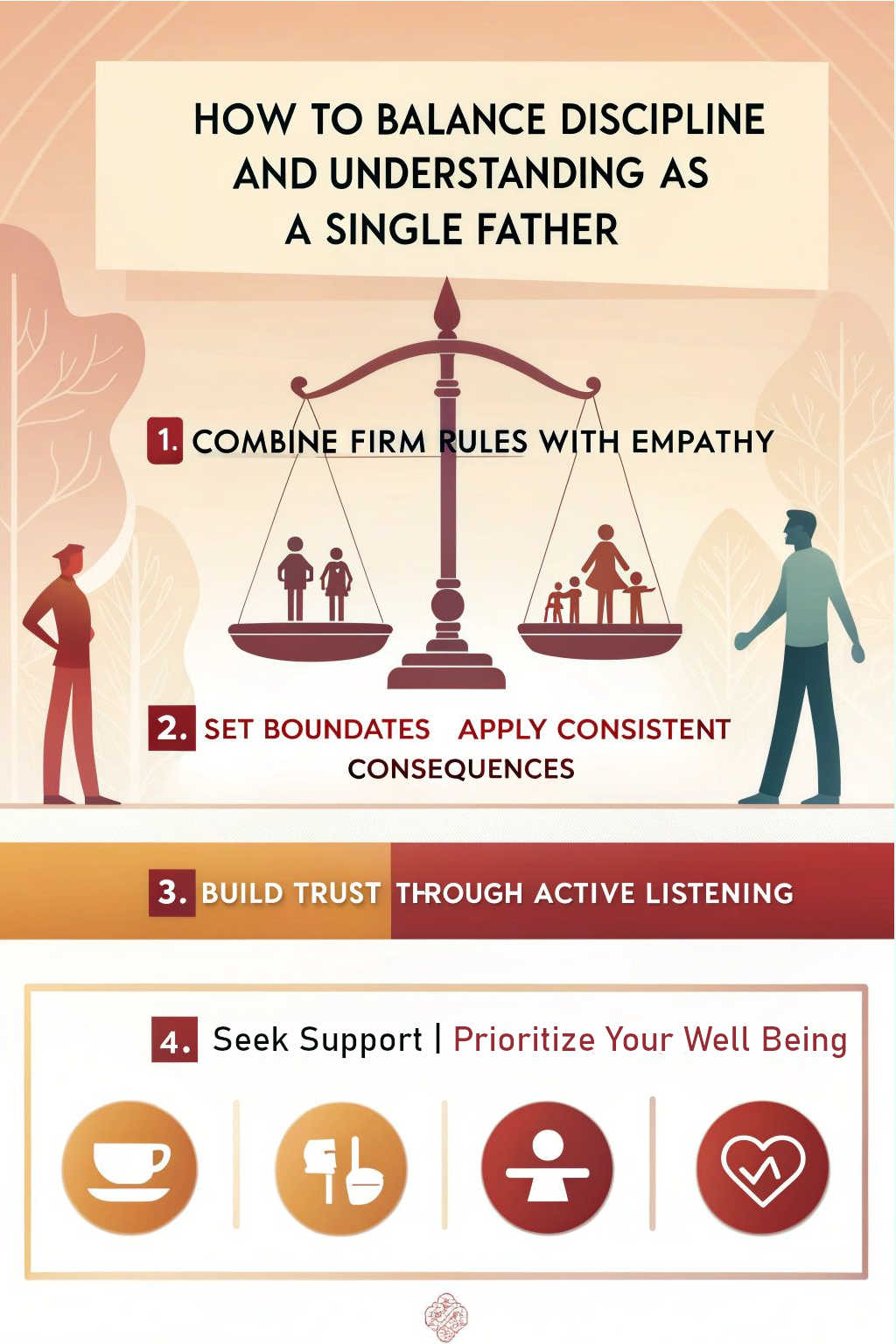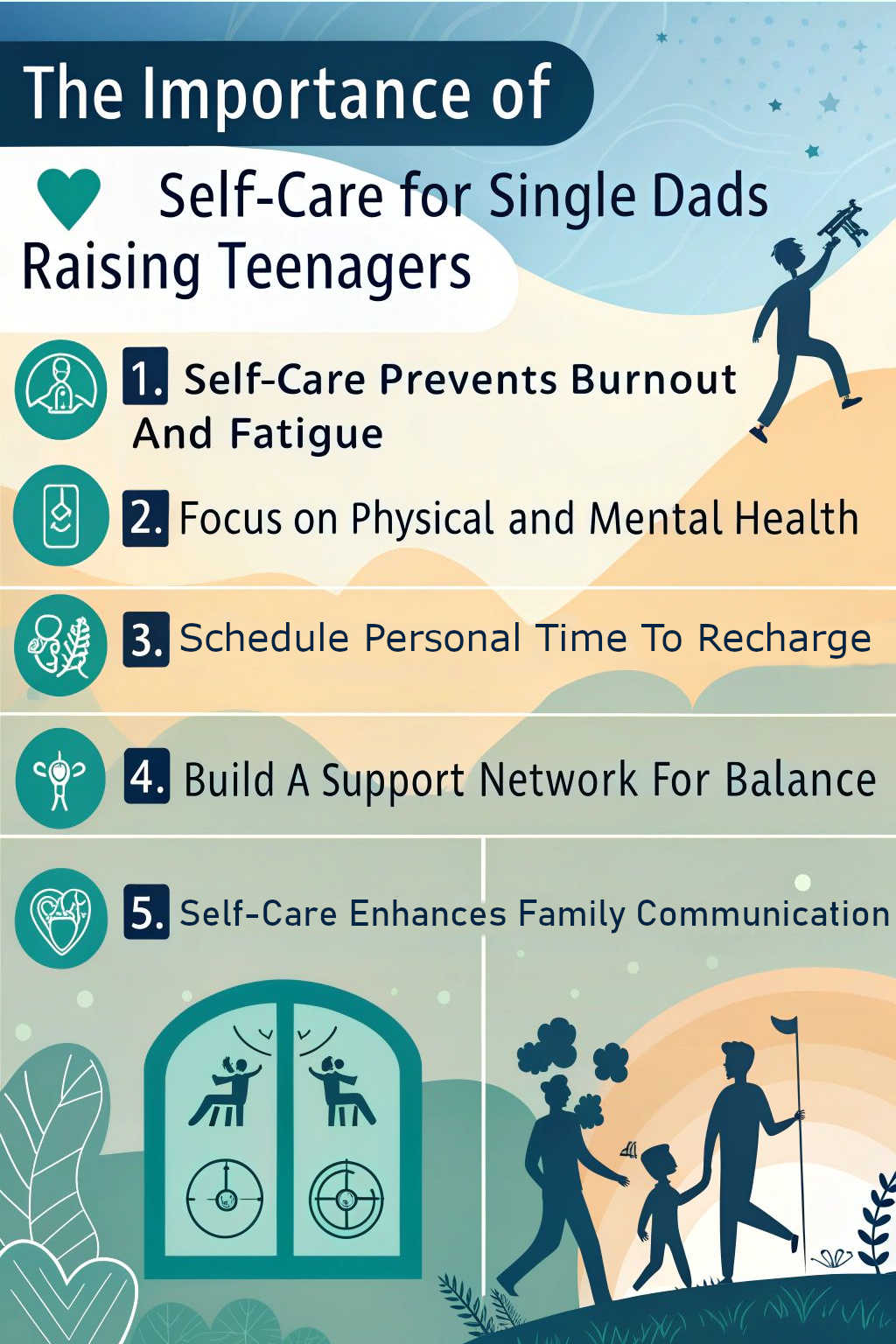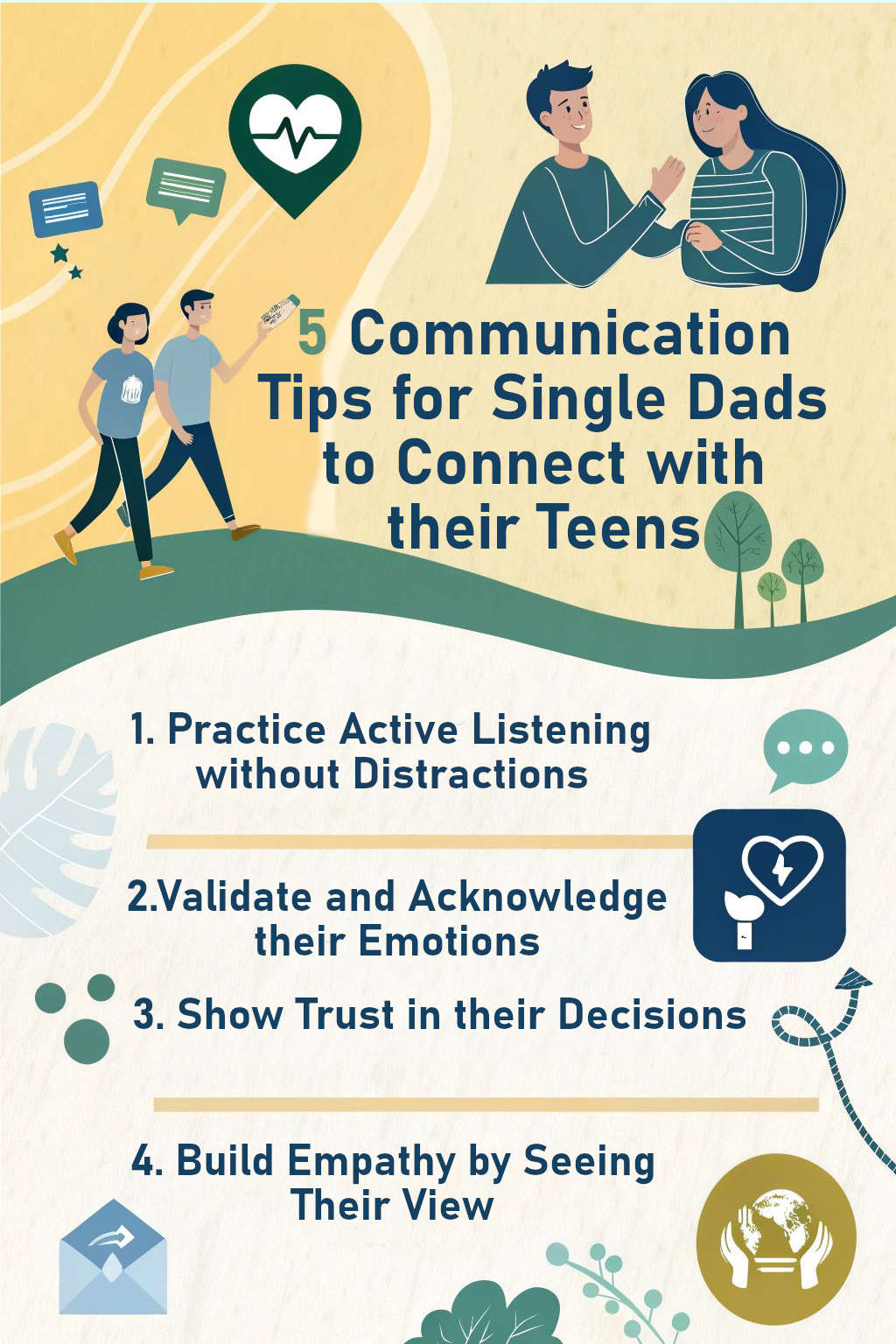If you’re feeling overwhelmed and are seeking help, finding a qualified mental health counselor in San Mateo, California is the first step towards healing. Did you know that TheTeenDoc provides an array of professional counseling options including individual, family and group support? Our blog covers everything from how to navigate through your selection of local counselors to making sense of insurance coverage for these essential services.
Keep reading, there’s a lot to understand about this vital resource in our community!
Key Takeaways
- Seeking professional help from a mental health counselor in San Mateo, California is crucial for those who are feeling overwhelmed and need support.
- Factors to consider when choosing a counselor include specific needs, expertise, qualifications, reviews/testimonials, compatibility, accessibility, payment options, and available resources.
- Online resources such as directories provided by San Mateo County Mental Health Services and the Health Plan of San Mateo can help individuals find suitable mental health therapists in the area.
- Psychologists assess, diagnose, and treat various mental health conditions; therapists provide support tailored to individual needs; counselors offer guidance and personalized counseling services.
- Seeing a mental health counselor offers emotional support and helps develop coping skills, improve self-awareness, and learn stress management techniques.
Finding a Mental Health Counselor in San Mateo
When looking for a mental health counselor in San Mateo, it is important to seek professional help that suits your specific needs.
Taking the first step to seek professional help for mental health concerns can be daunting but pivotal. In San Mateo, individuals battling emotional distress or mental illness have access to a wealth of resources that provide support during these challenging times.
The importance of skilled intervention lies in its ability to offer personalized strategies, coping mechanisms, and mental health treatments tailored to individual needs. Clinical counseling services offered by TheTeenDoc cater exactly to this need on a sliding fee scale making it accessible for all.
Mental health professionals such as counselors provide not only emotional support but also guide their clients towards better self-awareness and improved stress management techniques. Just like physical well-being, prioritizing mental health is essential for overall wellness and fulfilling life experience.
Factors to consider when choosing a counselor
Choosing the right counselor for mental health therapy in San Mateo should be guided by several important factors.
- Specific Needs: Each individual’s therapy needs differ. Some may require a counselor specializing in stress management, while others may need someone well-versed in grief counseling.
- Expertise: The area of expertise of the mental health therapist is critical. Look for counselors who specialize in the specific area you need help with.
- Qualifications and Credentials: Check to ensure that the counselor is a licensed mental health practitioner. They should have relevant certifications and academic qualifications as proof of their competence.
- Reviews and testimonials: Doing some online research can yield valuable information about potential therapists. Check reviews and testimonials from past clients to gain insight into their experiences.
- Compatibility: It’s essential that you feel comfortable discussing your feelings with your chosen therapist – so consider compatibility when choosing.
- Accessibility: Consider location and availability, especially if you anticipate needing regular sessions.
- Payment Options: Before starting therapy, inquire about payment options and whether they accept your insurance plan or not.
- Resources: Utilize local resources like the San Mateo County Health department or online directories to find top-rated counselors.
Using online resources to find a counselor
Harnessing the power of technology, it’s now easier than ever to find a mental health therapist in San Mateo. Your first point of call could be online directories such as the comprehensive resource guide provided by San Mateo County Mental Health Services, which lists numerous psychologists and licensed mental health counselors within the region.
Online platforms offer valuable insights into their areas of expertise, qualifications, credentials, and often include reviews from previous clients. Another useful tool is the Health Plan of San Mateo website that not only offers access to therapists but also provides information on other healthcare services available in your vicinity.
The Internet has effectively bridged geographical barriers making online therapy an option for those seeking flexibility or anonymity in counseling sessions.
Different Types of Mental Health Professionals
Psychologists, therapists, and counselors are all different types of mental health professionals who can provide support and treatment for various mental health issues.
Psychologists
Psychologists play a crucial role in mental health counseling in San Mateo, California. These professionals are highly trained and qualified to assess, diagnose, and treat various mental health conditions.
They provide therapy and counseling services to individuals of all ages, helping them navigate through challenging emotions, behaviors, and thoughts. Psychologists utilize evidence-based therapeutic techniques to address a wide range of issues such as anxiety disorders, depression, trauma-related conditions, addiction, and relationship problems.
With extensive knowledge of human behavior and the mind-body connection, psychologists offer personalized treatment plans tailored to each individual’s needs. Whether you’re seeking short-term support or long-term therapy, working with a psychologist can provide invaluable guidance on your journey towards improved mental well-being.
Therapists
Therapists play a crucial role in providing mental health support and guidance to individuals who may be struggling with various issues. These professionals are trained to help clients explore their feelings, thoughts, and behaviors in order to develop healthier coping mechanisms and achieve positive mental well-being.
In San Mateo, California, there are numerous therapists available who offer services tailored to the unique needs of each individual.
One resource for finding therapists in San Mateo is the therapist directory, which allows individuals to search for professionals specializing in different areas such as anxiety, depression, trauma, or relationship issues.
Additionally, TheTeenDoc provides counseling services at sliding fee scales and even offers free services for certain recipients like those with Medi-Cal or victims of crime.
Counselors
Counselors play a crucial role in the field of mental health, providing support and guidance to individuals facing various challenges. In San Mateo, there are numerous experienced and qualified counselors available to help you navigate your mental health journey.
These professionals offer personalized counseling services tailored to your specific needs, helping you develop coping skills, improve self-awareness, and manage stress effectively. Whether you’re dealing with anxiety, depression, trauma, or any other mental health issue, a counselor can provide emotional support and assist you in developing strategies for positive growth.
With an array of local resources available in San Mateo County and online therapy options accessible from the comfort of your own home, finding the right counselor for your needs has never been easier.
Differences and similarities between each profession
Mental health professionals come in various forms, including psychologists, therapists, and counselors. Each holds a unique role and specialization, yet they all share a common objective – to promote and restore mental health.
|
Profession
|
Duties
|
Education and Training
|
|
Psychologists
|
Psychologists conduct psychological tests, research, and interventions. They help patients understand their feelings, behaviors, and relationships. Psychologists in San Mateo County also offer psychological first aid and grief support counseling.
|
A doctorate in psychology (Ph.D. or Psy.D.) is required, in addition to supervised clinical experience.
|
|
Therapists
|
Therapists provide treatment for a variety of issues, including stress, anxiety, and life transitions. They offer strategies for clients to manage their symptoms and cope with challenging situations. Therapists are part of the local resources in San Mateo, available through Personal Counseling & Wellness Services and other clinics.
|
Master’s degree in counseling or related field is typically required, along with supervised clinical experience.
|
|
Counselors
|
Counselors help clients explore and overcome personal issues, from daily life concerns to more severe, chronic conditions. They work in a variety of settings, including schools, government organizations, and healthcare facilities. There are positions for Mental Health Counselor I/II in Assisted Outpatient Treatment programs in San Mateo County.
|
A master’s degree in counseling or a related field, along with supervised clinical experience, is typical.
|
While these professions share a commitment to mental health restoration, the differences lie in their specific job duties and education requirements. San Mateo, California, offers a wealth of resources across these professions to support the mental wellbeing of its residents.
Benefits of Seeing a Mental Health Counselor
Seeing a mental health counselor offers emotional support, helps develop coping skills, improves self-awareness, and teaches stress management techniques.
Emotional support
Seeking emotional support is a crucial aspect of mental health counseling. When facing challenges, it’s essential to have someone who can provide a safe and supportive space for you to express your emotions and concerns.
A mental health counselor in San Mateo can offer compassionate guidance and understanding as you navigate through difficult times. They will listen without judgment, offering empathy and validation for what you’re experiencing.
Through therapeutic techniques, they can help you develop healthy coping mechanisms and explore strategies to manage your emotions effectively. Whether dealing with anxiety, depression, or any other mental health issue, having the emotional support of a counselor can make a significant difference in your overall well-being.
Coping skills development
Coping skills development is a crucial aspect of working with a mental health counselor in San Mateo, California. By learning effective coping strategies, individuals can better manage and navigate life’s challenges.
Whether it’s dealing with stress, anxiety, or depression, acquiring these skills can empower individuals to build resilience and improve their overall well-being. A skilled mental health counselor can provide guidance and support in developing personalized coping mechanisms tailored to each individual’s needs.
Through therapy sessions and evidence-based techniques, such as cognitive-behavioral therapy (CBT) or mindfulness practices, individuals can learn how to identify triggers, regulate emotions, challenge negative thoughts, and cultivate healthy coping mechanisms.
Improved self-awareness
Improved self-awareness is one of the many benefits of seeing a mental health counselor in San Mateo, California. Through counseling sessions, individuals can gain a deeper understanding of their thoughts, emotions, and patterns of behavior.
This increased self-awareness allows them to recognize and challenge negative thought patterns or behaviors that may be hindering their personal growth and well-being. By becoming more aware of their own strengths and weaknesses, individuals can make more informed decisions and take proactive steps towards positive change in their lives.
Seeking professional help from a licensed mental health counselor in San Mateo can provide the guidance and support needed to cultivate improved self-awareness for greater overall well-being.
Stress management techniques
Stress is a common experience that can have detrimental effects on our mental well-being. Fortunately, working with a mental health counselor in San Mateo can provide valuable stress management techniques to help individuals cope better.
These techniques may include deep breathing exercises, mindfulness practices, and relaxation techniques such as progressive muscle relaxation. By learning these skills from a licensed mental health counselor, individuals can develop effective strategies to reduce stress levels and improve overall emotional resilience.
With the support and guidance of a professional counselor, managing stress becomes attainable and empowers individuals to lead healthier lives.
How to Choose the Right Mental Health Counselor
To choose the right mental health counselor, consider your specific needs, their areas of expertise, qualifications and credentials, and read reviews and testimonials. Find out more about finding the perfect mental health counselor for you!
Determine your specific needs
To choose the right mental health counselor in San Mateo, it’s essential to determine your specific needs. Take some time to reflect on what you’re looking to achieve through counseling and identify any specific issues or concerns you may have.
Are you dealing with anxiety, depression, or relationship problems? Understanding your needs will help you find a counselor who specializes in the areas that are most relevant to you.
One resource available is the therapist directory where individuals can search for psychologists, therapists, or counselors near San Mateo. Additionally, San Mateo County Mental Health Services provide a comprehensive resource guide and information about mental health services in the county.
By knowing exactly what you’re seeking help for, you’ll be better equipped to find a licensed mental health counselor who can provide the support and guidance necessary for your well-being. Keep in mind that there are various clinics and centers throughout San Mateo County offering clinical counseling services on a sliding fee scale as well as free options for certain recipients such as Medi-Cal and Victims of Crime programs.
Consider their areas of expertise
It’s important to consider the areas of expertise when choosing a mental health counselor in San Mateo. Each counselor may have different specialties and focuses, so finding one that aligns with your specific needs can greatly enhance your therapy experience.
For example, some counselors may specialize in anxiety disorders, while others may focus on trauma or relationship issues. By considering their areas of expertise, you can ensure that you are receiving targeted support and guidance tailored to your unique situation.
Remember, finding a counselor who has experience and knowledge in treating the specific challenges you are facing can make a significant difference in your overall progress and well-being.
Check their qualifications and credentials
It is crucial to check the qualifications and credentials of a mental health counselor before making a decision. This ensures that you are receiving therapy from a professional with the necessary expertise and training.
Look for counselors who are licensed in California and have completed relevant education and clinical experience. You can verify their credentials by checking online directories or contacting professional organizations such as the California Board of Behavioral Sciences.
Additionally, consider if the counselor has experience working with individuals who have similar concerns or conditions to yours. By taking these steps, you can ensure that you find a qualified mental health counselor who is equipped to support your specific needs.
Read reviews and testimonials
Finding the right mental health counselor in San Mateo can be a daunting task, but one way to gain insight into their effectiveness is by reading reviews and testimonials. By hearing from others who have sought help from these professionals, you can get a better understanding of the quality of care they provide.
Look for counselors with positive feedback regarding their ability to create a safe and supportive environment, their communication skills, and their effectiveness in helping clients overcome various mental health challenges.
Additionally, consider seeking out testimonials that specifically address your own needs or concerns. If you’re dealing with anxiety or depression, for example, look for reviews from individuals who have had success working through similar issues with the counselor you are considering.
Online Therapy as an Option
Online therapy offers numerous benefits for those seeking mental health support in San Mateo, including increased accessibility and convenience, as well as the ability to connect with qualified counselors from the comfort of their own homes.
Benefits of online therapy
Online therapy offers numerous benefits for individuals seeking mental health support:
- Convenience: Online therapy allows you to attend sessions from the comfort of your own home or any location with internet access. This eliminates the need to commute, saving you time and reducing stress.
- Accessibility: Online therapy breaks down barriers to accessing mental health services. It is particularly beneficial for individuals with mobility limitations, living in remote areas, or struggling with transportation issues.
- Flexibility: With online therapy, you have more scheduling options available. Therapists often offer evening and weekend appointments, accommodating different work schedules and time zones.
- Anonymity and privacy: Some individuals may feel more comfortable discussing sensitive topics in an online setting where they are not physically present. Online therapy provides a certain level of anonymity, allowing for increased openness and honesty.
- Larger pool of therapists: By opting for online therapy, you can choose from a wider range of qualified therapists who may not be available in your local area. This gives you access to specialists that suit your specific needs and preferences.
- Continuity of care: If you relocate or travel frequently, online therapy ensures uninterrupted access to your therapist. You can maintain consistent progress even when facing geographical limitations.
- Reduced cost: Online therapy tends to be more affordable compared to traditional in-person sessions as it eliminates travel expenses and overhead costs associated with maintaining physical office spaces.
- Technology-driven tools: Many online therapy platforms offer additional resources such as secure messaging, journaling features, and self-help materials that supplement face-to-face sessions.
- COVID-19 safety precautions: During times of pandemic or health concerns, online therapy provides a safe alternative when meeting in person is not advised or feasible.
- Confidentiality and security measures: Reputable online therapy platforms prioritize client confidentiality by employing secure video conferencing software and adhering to strict privacy regulations.
How to find reputable online counselors
Finding reputable online counselors is crucial for ensuring you receive quality mental health support. Here are some steps to help you find the right professional:
- Look for licensed and accredited therapists: Make sure the online counselor you choose is licensed and accredited by a reputable organization, such as the American Psychological Association (APA) or the National Board for Certified Counselors (NBCC).
- Check their experience and expertise: Research the counselor’s experience in treating specific mental health issues similar to yours. Look for their specialization, areas of expertise, and years of practice.
- Read reviews and testimonials: Look for reviews and testimonials from previous clients to get an idea of their reputation and success rate. This can provide insight into the counselor’s effectiveness and compatibility with clients.
- Seek recommendations: Ask your friends, family, or healthcare providers if they can recommend any reputable online counselors. Personal referrals can often lead to finding trustworthy professionals.
- Consider accessibility and availability: Ensure that the online counselor offers convenient appointments that fit your schedule. Also, check if they use secure video conferencing platforms to protect your privacy during sessions.
- Verify insurance coverage: If you have insurance coverage for mental health services, confirm whether the online counselor accepts your insurance plan. This can help reduce out-of-pocket expenses.
Insurance coverage for online therapy
Insurance coverage for online therapy is becoming more common, making mental health services accessible to a wider range of individuals. Many insurance plans now include coverage for online counseling sessions, allowing people to receive the support they need from the comfort of their own homes.
Health Plan of San Mateo, for example, offers access to therapists in the area as part of their comprehensive healthcare services. It’s important to check with your specific insurance provider to determine if they cover online therapy and what the requirements may be.
In addition to traditional insurance plans, there are also options for low-cost or free mental health services in San Mateo County. The county’s Behavioral Health and Recovery Services Program provides resources and information about mental health services available in the area on a sliding fee scale.
They offer individual and group counseling sessions that are free for Medi-Cal recipients and Victims of Crime recipients.
With insurance coverage expanding and affordable options available, individuals in San Mateo have greater access than ever before to high-quality mental health care through online therapy or other local resources.
Local Resources in San Mateo
In San Mateo, you can find a range of local resources to support your mental health journey. From counseling centers and clinics to support groups and community services, there is help available for everyone.
Explore these resources and take the first step towards improving your well-being.
Counseling centers and clinics
Counseling centers and clinics in San Mateo provide a range of mental health services to individuals in need. These centers offer a safe and supportive environment where individuals can seek professional help. Here are some counseling centers and clinics available in San Mateo:
- TheTeenDoc: Provides individual and group counseling first aid, grief support counseling, and connects individuals to ongoing mental health services and crisis support.
- Clinical Counseling Services: Offers sliding fee scale appointments at three clinics in San Mateo County. These services are free for Medi-Cal and Victims of Crime recipients.
- Personal Counseling & Wellness Services: Provides free and confidential personal counseling appointments for CSM students, both in-person and over Zoom.
- Assisted Outpatient Treatment Programs: San Mateo County has positions available for Mental Health Counselor I/II in these programs, ensuring ongoing support for individuals who require more intensive care.
- Mental Health Directory and Crisis Services: San Mateo County offers a comprehensive resource guide with information about various mental health services available in the county, including counseling centers.
- Therapist Directory: Individuals can use the therapist directory to search for psychologists, counselors, or therapists near San Mateo, CA.
Support groups
Support groups play a crucial role in the journey towards mental health and well-being. They provide an opportunity for individuals facing similar challenges to come together, share their experiences, and offer support to one another. In San Mateo, California, there are various local resources that offer support groups:
- TheTeenDoc provides access to individual and group psychological first aid, grief support counseling, and connects individuals to ongoing mental health services and crisis support.
- Clinical counseling services are available in three clinics in San Mateo County on a sliding fee scale and are free for Medi-Cal and Victims of Crime recipients.
- Personal Counseling & Wellness Services at CSM offers free and confidential personal counseling appointments for students, both in-person and over Zoom.
- San Mateo County Mental Health Services provides a comprehensive resource guide with information about mental health services available in the county.
- There is a mental health directory and crisis services available in San Mateo County.
- Health Plan of San Mateo offers access to therapists in the area, among other healthcare services.
Community mental health services
Community mental health services in San Mateo are readily available to provide support and resources for individuals seeking help. These services aim to address the mental health needs of the community and ensure access to quality care. Here are some key options available:
- TheTeenDoc: Offers individual and group psychological first aid, grief support counseling, and connects individuals to ongoing mental health services and crisis support.
- Clinical counseling services: Available in three clinics in San Mateo County, these services are provided on a sliding fee scale and are free for Medi-Cal and Victims of Crime recipients.
- Personal Counseling & Wellness Services: Provides free and confidential personal counseling appointments for CSM students, both in-person and over Zoom.
- Mental Health Counselor I/II positions: Assisted Outpatient Treatment programs in San Mateo County offer opportunities for mental health counselors to make a difference.
- Comprehensive resource guide: San Mateo County Mental Health Services provides a comprehensive guide with information about mental health services in the county.
- Therapist directory: Individuals can search for psychologists, counselors, or therapists near San Mateo using the therapist directory.
- Crisis services: San Mateo County offers crisis services along with its mental health directory to ensure immediate assistance when needed.
- Behavioral Health and Recovery Services Program Psychiatry Residency: This program offers psychiatry residency opportunities within San Mateo County.
- Mental health diversion programs: Available in San Mateo County, these programs aim to divert individuals from the criminal justice system into appropriate mental health care settings.
- Health Plan of San Mateo: This healthcare provider offers access to therapists in the area as part of their comprehensive range of healthcare services.
Insurance Coverage for Mental Health Services in San Mateo
Insurance coverage for mental health services in San Mateo varies depending on the type of insurance plan you have, so it’s important to understand what is covered and how to navigate your benefits effectively.
Types of insurance plans that cover mental health services
Mental health services are often essential for maintaining overall wellbeing, and acknowledging the costs involved is important. Thankfully, many insurance plans cover mental health services, which can significantly offset the financial burden. In San Mateo, the Health Plan of San Mateo, among other providers, offers access to an array of mental health services. Here’s a breakdown of the typical types of insurance plans that cover these services:
|
Insurance Plan
|
Description
|
|
Health Maintenance Organization (HMO)
|
This plan often requires you to stay within a specific network of healthcare providers for your mental health services to be covered, reducing out-of-pocket costs.
|
|
Preferred Provider Organization (PPO)
|
This type of insurance offers more flexibility by allowing you to receive care from both in-network and out-of-network providers, although the latter usually involves higher costs.
|
|
Point of Service (POS)
|
A POS plan is a blend of HMO and PPO plans. It requires a primary care physician referral for specialist services, but it provides coverage for both in-network and out-of-network services.
|
|
Exclusive Provider Organization (EPO)
|
With an EPO plan, you have the freedom to visit any healthcare provider within the network without a referral, but out-of-network services are typically not covered unless it’s an emergency.
|
|
Medicaid and Medi-Cal
|
These are state and federally funded programs that provide health insurance to eligible low-income adults, including those who need mental health services. In San Mateo, clinical counseling services are free for Medi-Cal recipients.
|
Remember to verify your coverage details with your insurance company to ensure your mental health needs are adequately covered.
How to navigate insurance coverage
Navigating insurance coverage for mental health services in San Mateo can be a complex process, but understanding your options can make it easier. Firstly, check what type of insurance plan you have and whether it covers mental health services.
Many plans do provide coverage for therapy or counseling sessions, so don’t hesitate to reach out to your insurance provider for more information.
Once you know what is covered, consider the different providers that accept your insurance. Look for mental health counselors or therapists who are in-network with your plan to maximize your benefits and minimize out-of-pocket costs.
You can use online directories or ask for recommendations from friends, family, or your primary care physician.
It’s also important to understand any requirements set by your insurance company, such as pre-authorization or referral processes. Familiarize yourself with these guidelines to ensure smooth access to mental health services without any surprises down the line.
Out-of-pocket costs and payment options
Out-of-pocket costs and payment options for mental health counseling in San Mateo are important factors to consider when seeking treatment. Here is a breakdown of the options available:
- Sliding Fee Scale: Many counseling clinics and centers in San Mateo County offer services on a sliding fee scale, which means that the cost of therapy is based on your income and ability to pay. This can make mental health services more affordable for individuals with limited financial resources.
- Insurance Coverage: If you have health insurance, it’s essential to check whether mental health services are covered under your plan. Most insurance plans provide some level of coverage for therapy sessions, but the extent of coverage may vary. Be sure to review your policy details or contact your insurance provider directly to understand what is included.
- Medi-Cal: In San Mateo County, individuals who qualify for Medi-Cal can receive free or low-cost mental health services through various clinics and providers. Medi-Cal covers a range of treatments, including counseling, therapy, and psychiatric care.
- Victims of Crime Compensation Program: If you are a victim of a crime, you may be eligible for financial assistance to cover the costs of mental health counseling through the Victims of Crime Compensation Program. This program aims to support individuals who have experienced trauma by providing necessary resources for recovery.
- Employee Assistance Programs (EAP): Some employers offer EAPs as part of their benefits package. These programs often include access to counseling services at reduced or no cost to employees and their families. Check with your employer or HR department to see if this option is available.
- Payment Plans: If paying out-of-pocket is necessary, many counselors offer flexible payment plans or installment options to help manage the cost over time.
Overcoming Mental Health Stigma in San Mateo
In San Mateo, efforts are being made to overcome the stigma surrounding mental health by addressing misconceptions, promoting open conversations, and advocating for support and resources in the community.
Addressing misconceptions about mental health
There are many misconceptions surrounding mental health that can create barriers to seeking help and support. It is important to address these misconceptions in order to promote understanding, empathy, and acceptance.
One common misconception is that mental health issues are a sign of weakness or personal failure. In reality, mental health conditions are medical conditions just like any physical illness, and seeking help for them takes strength and courage.
Another misconception is that people with mental health issues should be able to “snap out of it” or “just think positively.” This disregards the complex nature of mental health and the fact that it often requires professional intervention and treatment.
Additionally, there may be a stigma attached to seeking therapy or counseling, with some people believing it is only for those who are “crazy” or “unstable.” However, therapy can benefit anyone who wants to improve their overall well-being and develop healthy coping strategies.
Promoting open conversations and awareness
Open conversations and increased awareness are crucial steps in breaking down the stigma surrounding mental health in San Mateo. By encouraging open discussions about mental health, we can create a supportive environment where individuals feel comfortable seeking help without fear of judgment or discrimination.
It is essential to challenge misconceptions and educate others about the realities of mental health conditions. TheTeenDoc provides resources such as psychological first aid, counseling services, and crisis support for those in need.
Additionally, organizations like Personal Counseling & Wellness Services offer free and confidential counseling appointments for students. Let’s work together to promote open conversations about mental health and ensure that everyone feels supported on their journey towards well-being.
Advocating for mental health support and resources in the community
Advocating for mental health support and resources in the community is crucial to ensure that individuals have access to the help they need. In San Mateo, California, there are various ways to contribute to this advocacy.
Firstly, promoting open conversations and awareness about mental health can help reduce stigma surrounding these issues. By encouraging discussions within schools, workplaces, and other community settings, we can create a more supportive environment.
Additionally, advocating for increased funding and availability of mental health services is essential. San Mateo County offers comprehensive resource guides and information about local mental health services that individuals can utilize.
Being aware of these resources allows us to connect those in need with the appropriate assistance.
Lastly, supporting organizations that provide counseling and therapy services is another impactful way to advocate for mental health support in our community. Whether it’s volunteering or donating funds, every contribution helps make a difference in someone’s life.
Conclusion
In conclusion, finding a mental health counselor in San Mateo, California is crucial for anyone seeking professional help. By considering factors such as areas of expertise, qualifications, and reviews, individuals can choose the right counselor to meet their specific needs.
With the availability of online therapy options and local resources in San Mateo, accessing mental health support has never been more convenient. Overcoming stigma and promoting open conversations about mental health are important steps towards creating a supportive community for everyone.
Don’t hesitate to reach out and prioritize your well-being with the help of a licensed mental health counselor in San Mateo.
FAQs
1. What services does a mental health counselor in San Mateo, California provide?
A mental health counselor in San Mateo, California provides a range of services including individual therapy, couples counseling, family therapy, group therapy, and specialized treatments for specific mental health conditions.
2. How can I find the right mental health counselor in San Mateo, California?
To find the right mental health counselor in San Mateo, California, you can start by asking for recommendations from your primary care physician or trusted friends and family members. Additionally, online directories and review websites can help you read about other people’s experiences with different counselors to make an informed decision.
3. What qualifications should I look for in a mental health counselor?
When searching for a mental health counselor in San Mateo, California, it is important to look for someone who is licensed and has advanced training or certification in the specific areas you need help with. You may also want to consider their years of experience and any specializations they have.
4. How long does each counseling session usually last?
The length of each counseling session can vary depending on your needs and preferences as well as the therapist’s schedule. Typically sessions last around 45-60 minutes but some therapists offer longer sessions if needed or shorter sessions for specific treatment modalities such as EMDR or cognitive-behavioral therapy (CBT). It is best to discuss session duration with potential counselors during your initial consultation.
General Facts
- TheTeenDoc provides individual and group psychological first aid, grief support counseling, and connects individuals to ongoing mental health services and crisis support.
- Clinical counseling services are offered in three clinics in San Mateo County on a sliding fee scale and are free for Medi-Cal and Victims of Crime recipients.
- Personal Counseling & Wellness Services offers free and confidential personal counseling appointments for CSM students, both in-person and over Zoom.
- There are positions available for Mental Health Counselor I/II in Assisted Outpatient Treatment programs in San Mateo County.
- San Mateo County Mental Health Services provide a comprehensive resource guide and information about mental health services in the county.
- Individuals can search for psychologists, counselors, or therapists near San Mateo, CA using the therapist directory.
- San Mateo County has a mental health directory and crisis services available.
- Behavioral Health and Recovery Services Program Psychiatry Residency is offered in San Mateo County.
- Mental health diversion programs are available in San Mateo County.
- Health Plan of San Mateo provides access to therapists in the area, among other healthcare services.
Source URLs
https://www.smchealth.org/mental-health-services
https://www.smcgov.org/ceo/news/county-provides-mental-health-counselors-other-resources-support-coastal-residents
https://www.smuhsd.org/Page/9643
https://collegeofsanmateo.edu/personalcounseling/
https://www.governmentjobs.com/careers/sanmateo/Jobs/4098497
https://www.cidsanmateo.org/services/mental-health-san-mateo-services.php
https://www.goodtherapy.org/therapists/ca/san-mateo























